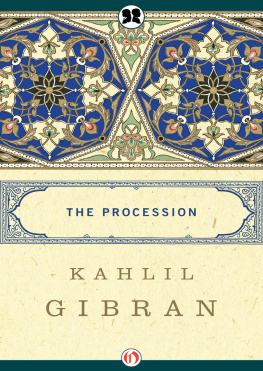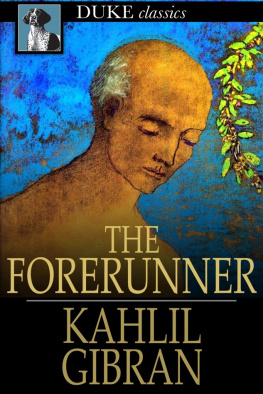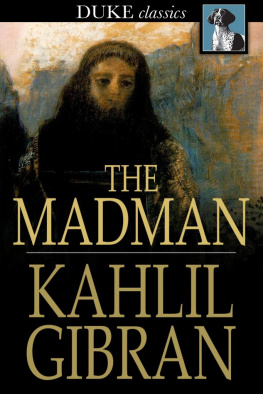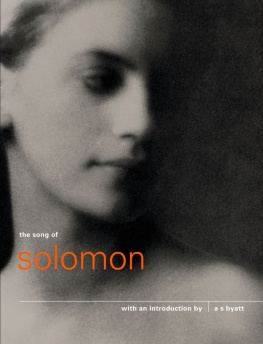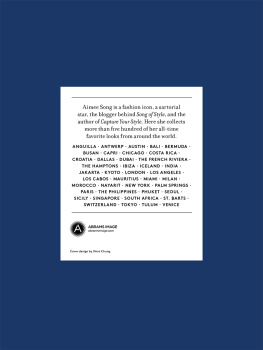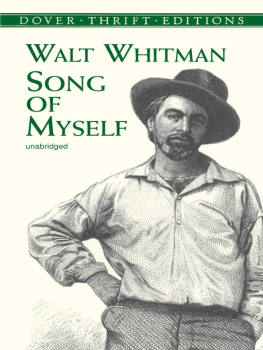The Procession
Kahlil Gibran
Edited, translated, and with a biographical sketch by
George Kheirallah
Philosophical Library



TO THE SONS AND DAUGHTERS
OF LEBANON
THE PROCESSION
CONTENTS
The Life Of Gibran Khalil Gibran
W ITH its shores caressed by the warm, indigo blue waters of the Mediterranean Sea, its lofty peaks turbaned with perpetual snow, the hoary and sacred Lebanon basks meditatively under the sunny, rarified skies of Mother Syria.
Nations were born on its western slopes; others were nursed and sheltered by it in the Orontes valley, and civilizations sprouted and matured in the not distant Plains of Shinar, under its watchful and benevolent eye. Although it lacked comparative fertility, the dwellers of its slopes were compensated by a plentiful supply of hardy cedar, planted there by the hand of God.
Its inhabitants built boats, sailed seas, and furnished their only available wealth to Egypt in the south and to the valley of the Euphrates on the east. The caskets of the Pharaohs within the sarcophagi, the beams of the Temples, the doors and furnishings, all required this precious wood. Their seamanship made the Phoenicians the worlds foremost traders and civilizers. Their greatest gifts, however, were not cedar, weaves, purple dyes, glass or metal castings (nor even their alphabet and sculptures which they bore to the then untutored Greeks and Romans), but rather the moral and spiritual revelations which their poets, seers, and prophets gave to the world.
For was it not in Lebanon that Tammuz was born? Did he not roam these very hills? Did he not descend to the depth of its valleys to cut and fashion his own reed and ascend again to scale its highest crags to play and sing? Beautiful of face, free of limb, and bold of spirit, he ranged the hillside, rode the wings of its tempests, communed with its stars and was lulled to sleep by the rustling of the leaves of its forests. Here the gentle zephyrs awakened him to plunge again into its crystalline rivers, quaff its water, and race its gazelles and antelopes, with Ishtar (Venus) in pursuit of this God of Beauty and Youth.
For many centuries the maidens of the Lebanon gathered on a certain spring day, adorned themselves in their finest raiment, bedecked themselves with flowers and ornaments, and roamed the hills for hyacinth, lilies, narcissi, and all the flowers with which the gods have especially carpeted the Lebanon. These they brought in armfuls to the River of Tammuz where, forming themselves into clusters and groups, they sang, danced, and bemoaned his death. They sprinkled their flower offerings on the rippling waters and the little virgins brought their small bronze statuettes of Tammuz to throw in the deep pools, hoping that a Tammuz-like bridegroom might come to seek them on some future spring day.
Tammuz, like everyone born on the slopes of these mountains, loved his native land, and could never resist its charm in springtime. Even after he was taken away by the Greeks, like many of the Syrian gods, and given the name of Adonis, he always deserted Mt. Olympus in springtime and returned to course over his native hills. Many a lovelorn maiden, who kept a vigil between the false and the true dawn, had a glimpse of the handsome Adonis fleeting over a promontory, running into the forest, or diving into the river. Even in our day, watchful shepherds have seen him in the environs of the Sacred Cedars, and many are those who believe that he will be reborn among them.
Wadi-Quadisha (The Holy or Sacred Valley) is the name by which this valley has been reverently called for unknown centuries. No other word could have described the feeling of the beholder than Wadi-Quadisha. The river course today, named Abu-Ali, which empties its waters into the infinite blue near Tripoli, leads towards its source in a steadily mounting grade. After following its upward zigzagging and tortuous course through the foothills and middle mountains, the traveler is suddenly ushered into a hushed and mystic canyon which expands into a basin-like valley, basking in peace and solitude, guarded on either side by immense, sheer and gigantic ledges of limestone and buttressed at the upper end against the snow-clad mountain.
In the distance, along the rim of the valley, are clusters of stone houses, clinging to the mountainside and forming the few scattered villages of Wadi-Quadisha. This Sacred Valley differs from other parts of the Lebanon because of its abundant water and its verdant and numerous groves of trees. Walnut and oak, zeizaphon, (Ziziphus Spina Christi), poplar and willow trees dot the landscape; graceful and airy pines interspace it here and there, and its terraced slopes are planted with mulberry, fig, fruit trees, and extensive vineyards.
It was to this spot in the early days of Christianity, when the strife of the sects was intense and bitter, that the monk-priest, Mar-Maroon (St. Maroon) came. It was here that his followers increased, and it was here that the Sons of Lebanon, conforming to his teachings, adopted for their ritual, still in use today, the Aramaic language which was spoken by Jesus. Although this church is affiliated with the Roman Catholic Church, its priests marry and raise families, and its liturgy and ecclesiastical chantone of the most musical of allis still followed in the language commanded by Mar-Maroon.
The ascending traveler looking across the white-turbaned mountain facing him may liken this fruitful valley to the chest of an imaginary giant, under whose venerable chin the most ancient and sacred grove of cedars, like a beard, has survived the centuries. A short distance below the cedars, and slightly to the right, seemingly clinging to space, is the typical Lebanon town of Bcherri, the birthplace of Gibran Khalil Gibran.
These Lebanon towns are composed of compactly built homes, constructed of stones, beamed with pine logs, and ceilinged with stone slabs over which earth and gravel are so packed as to make a flat, waterproof roof. After a heavy rain or a snowfall, a smooth stone roller (Mehdela), drawn by wooden pincers fitted into grooved ends, is rolled forward and back over the roof to pack the layer of earth and prevent seepage. These homes consist of a stone cellar under one or two very large single or double rooms, averaging fifteen by twenty-five feet, to twenty by forty feet, the wider rooms having more pillars to support the visible beams. The walls are plastered with a whitewashed tufta.Towards the back part of this community room in which the family lives, is found a row of built-in provision bins. These are also constructed of tufta, with semi-elliptical openings at the top and a cylindrical outlet about four inches in diameter at the bottom, each of which is closed with a handmade cloth plug. In the fall of the year the wheat, lentils, chick-peas, flour, crushed wheat, and such staple provisions go into their separate bins to be drawn from below by the good housewife. Three or more earthenware jars containing oil, grape molasses, and olives are placed on stands along the wall. The family is thus ready to face a winter of cold weather and social activities.
The beds, quilts and bedding are neatly folded in the morning and placed in a niche alcove to be spread on the floor at sleeping time. The floor is a crusted packed red clay, polished to a patent-leather shine, which is covered by a matting in summer and by black goat-hair rugs m winter. There are usually two or three small windows set in the wall. The door of heavy wood swings on its oaken pegs into stones grooved above and below. The key, consisting of a piece of wood to which a number of nails are adjusted so as to fit into specific grooves, gave birth to our Yale lock and keys. The hearth is utilized in winter time for cooking and heating purposes, and, as it lacks a chimney, the wood smoke floats to the ceiling to blacken the beams and slabs and escape through a vent high in the wall. While the homes of the well-to-do are spacious and artistic the house in which Gibran Khalil Gibran was born was a modest one.

